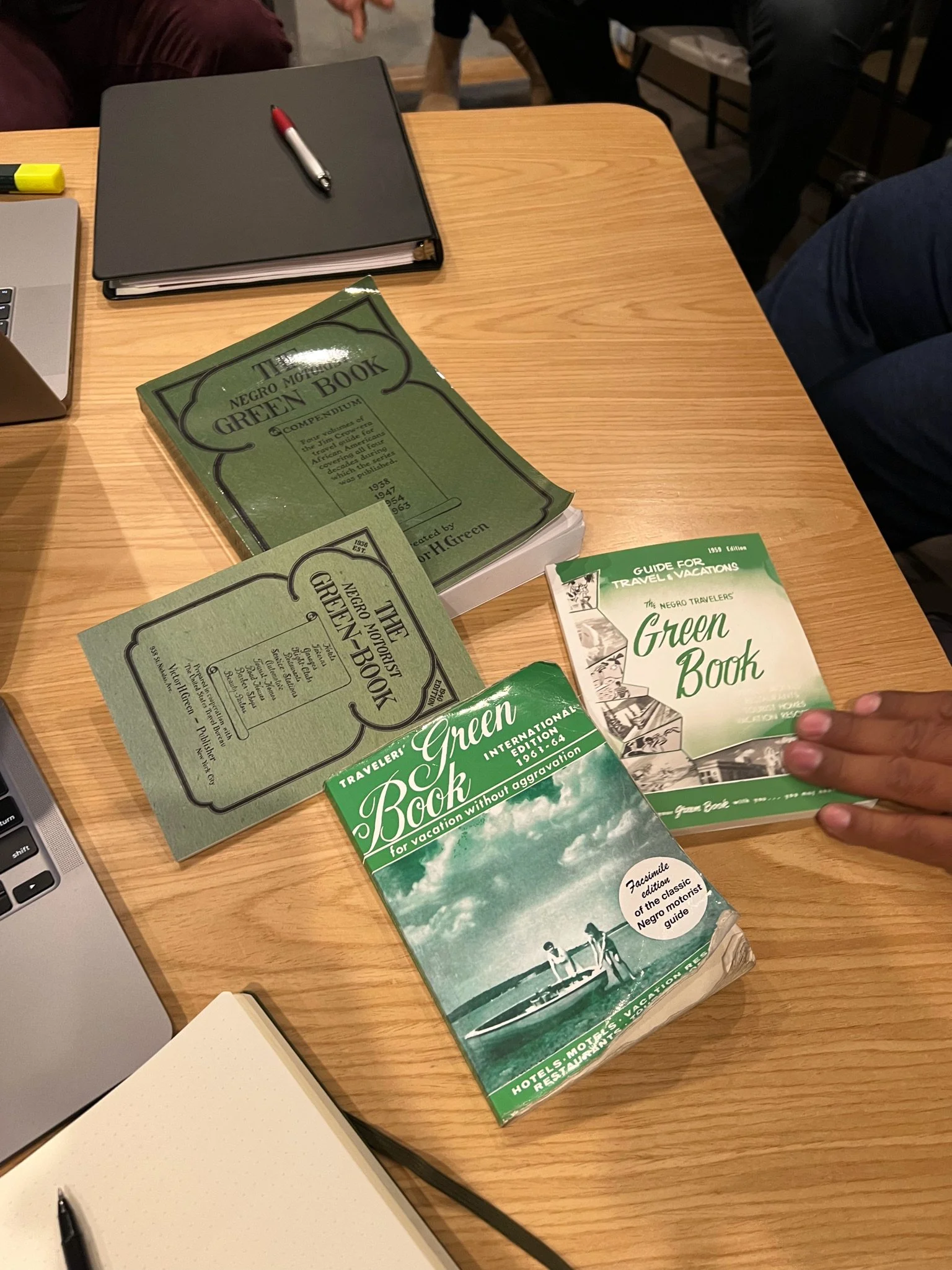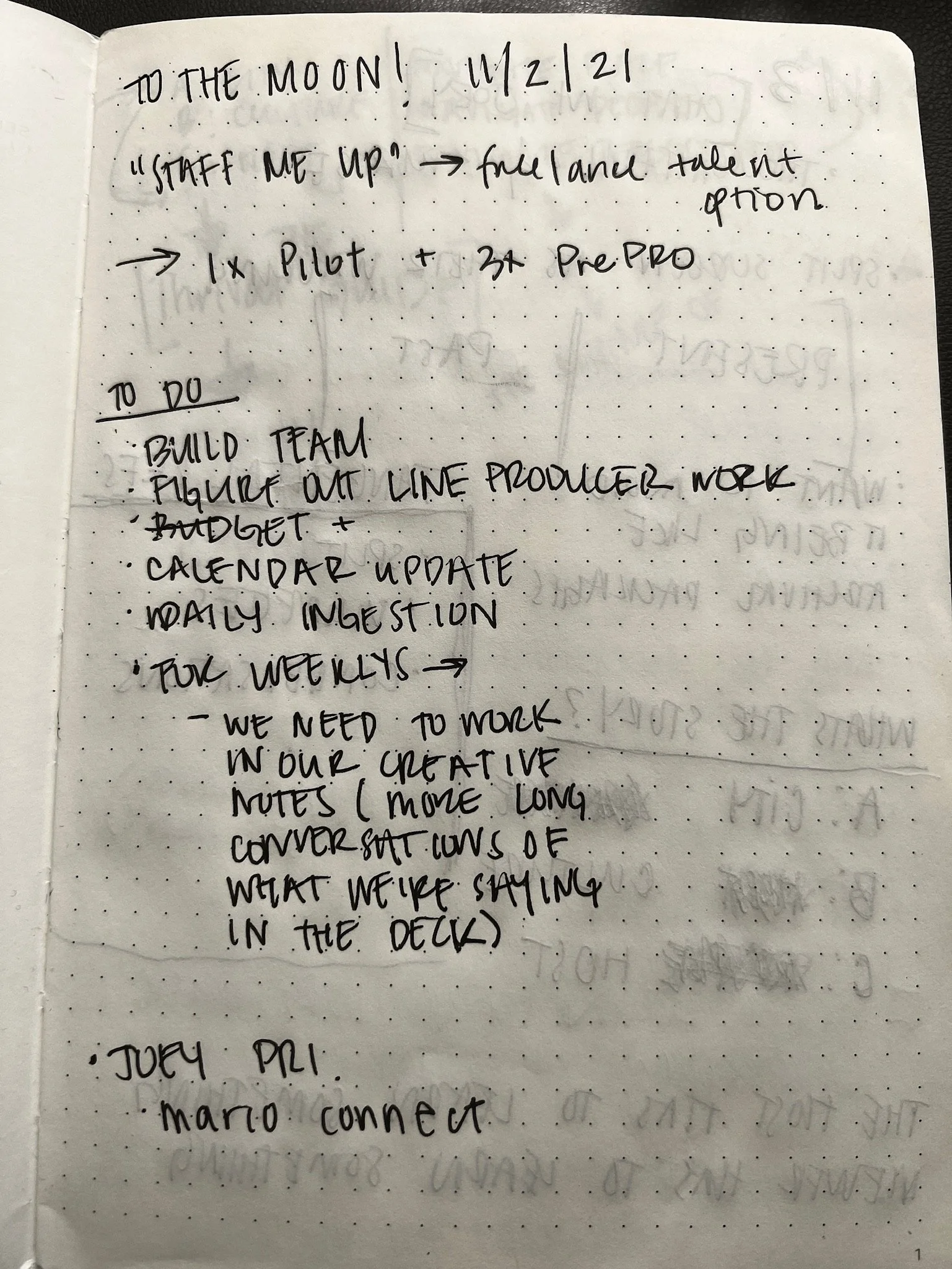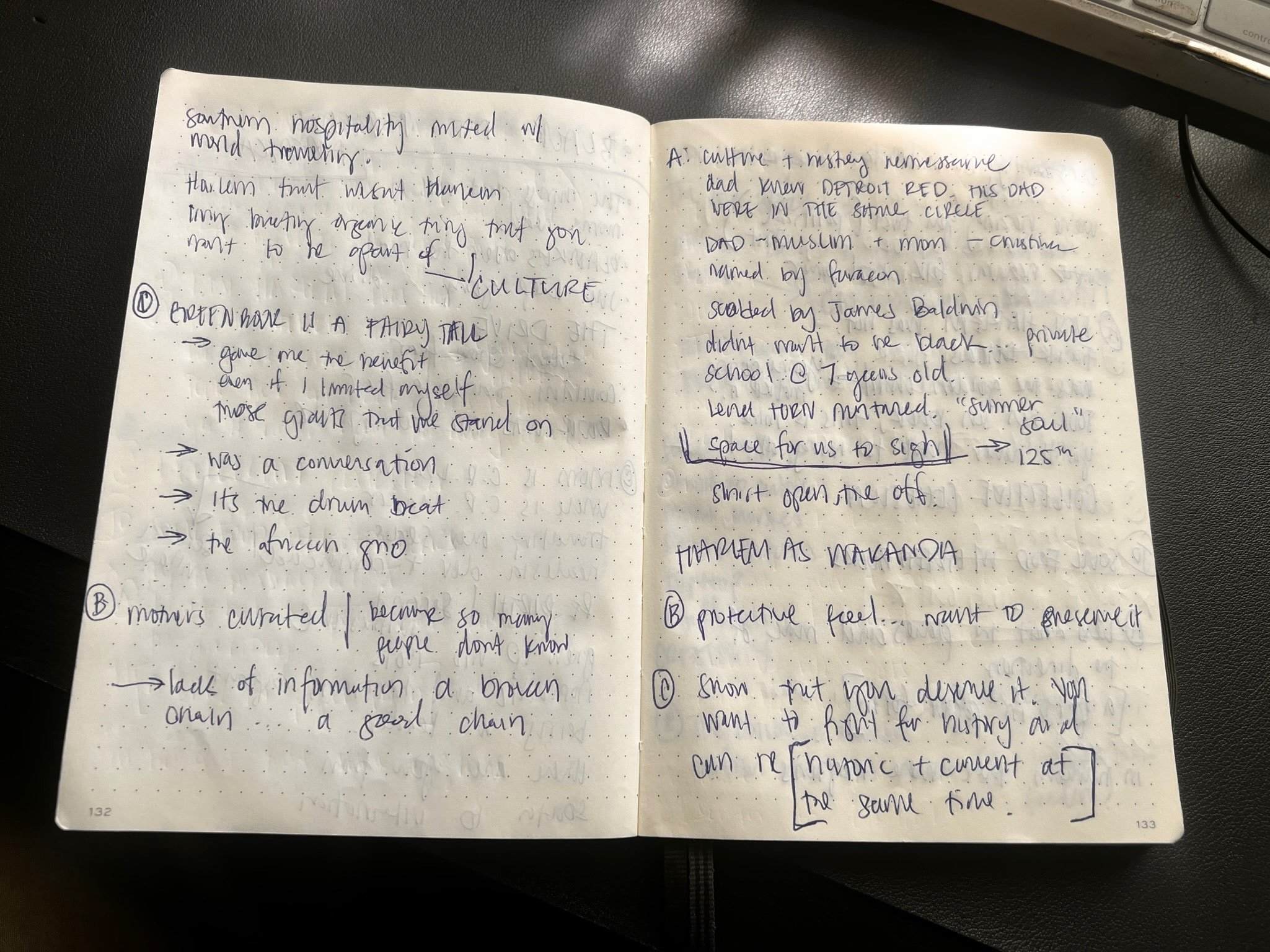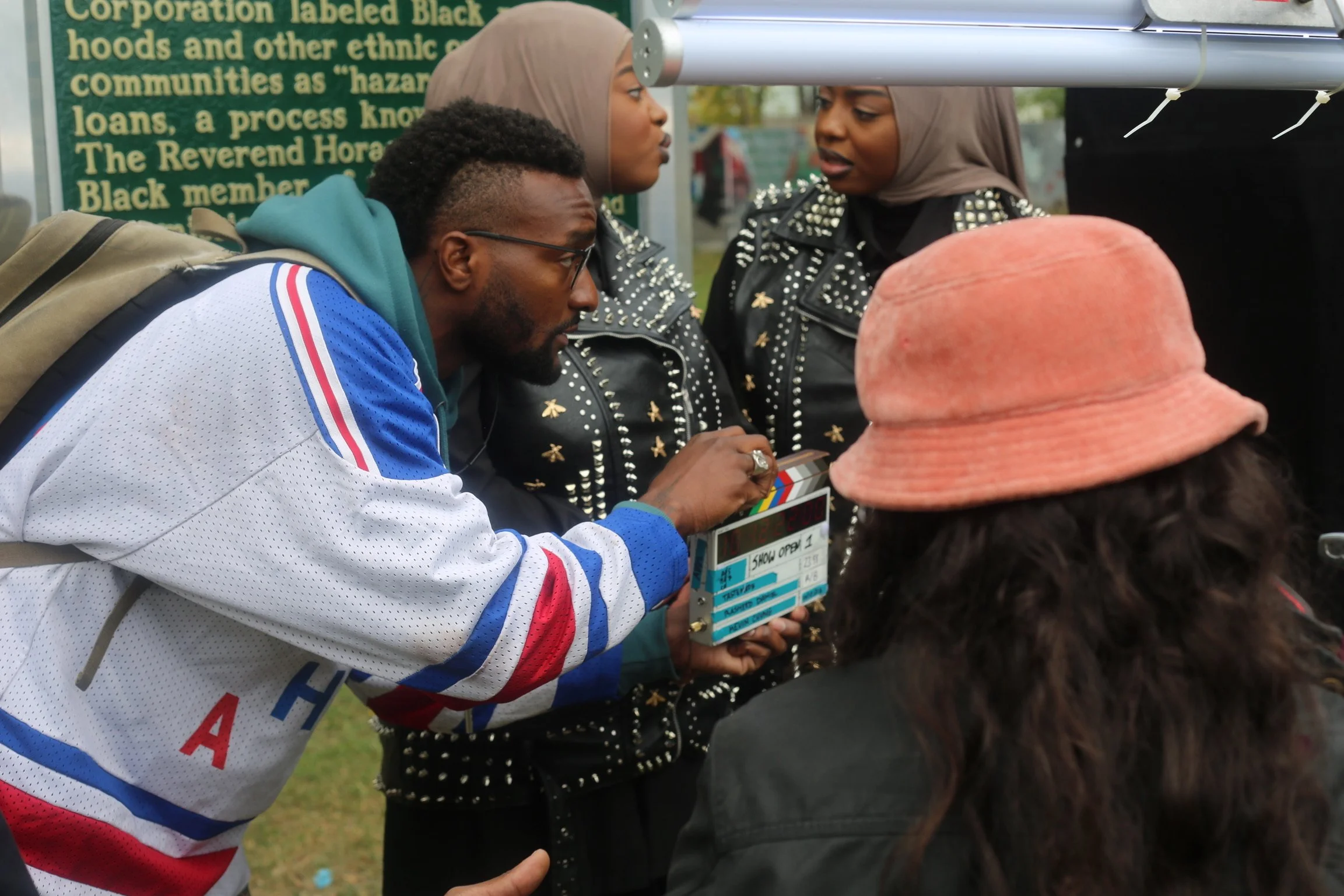"WHAT'S YOUR PART IN THE REVOLUTION?": Phil Moore's Journey with "A New Green Book"
In the world of TV and film production diversity and inclusivity have been an ever-present problem that has plagued the landscape for those who happen to work in this sector. My journey of breaking into the film industry was very serendipitous and I’ve been fortunate to have entered into the door that I have in Atlanta, Georgia. But even still, bigger productions tend to lack diversity and representation below and above the line.
This leads me to how I met Phil Moore on the set of the series he created via Tastemade and Youtube titled “A New Green Book”. Where their team traveled to various cities throughout the United States that housed large concentrations of Black folks and the businesses they own and serve their local community with.
I had the opportunity to chat it up with Phil following the finale of the series about the origins of the show and what was the motivation behind curating content such as this. As I was blessed to be a part of the Atlanta leg of this production I was afforded the opportunity to experience Atlanta'sBlackness in an immersive way. That was due to Phil's vision for the show, as the "Branded Development Lead" at Tastemade a position that he pretty much created and "fought for" was one of the determining factors for this show's genesis.
"What's your part in the revolution?"
In the wake of the riots of 2020 following George Floyd's death, the country faced many adversities. This, compounded by a national lockdown, gave time for many in the country to be very self-reflexive, Phil was one of those people. In a quest for solitude, Phil went back to Chicago and isolated himself for a week, which led him to the question "What's your part in the revolution?" The pandemic of 2020 and many of the events that surrounded it forced people from all aspects of life to adjust in many ways that looked different for many people. Phil chose to take up this mantle to invoke change in the subject matter of media and storytelling, particularly Black-centered stories with Black voices.
So the process began with Phil embarking on this journey with what felt like the weight of the world. His internal motivation called him to actively be a catalyst for change. To manage, Phil contacted the Head of People to gather all Black-identifying members of the organization to be participants in a meeting of the minds, allowing Phil to lean into his community for clarity.
"If I'm going to do this, this needs to come from more than just me."
Phil was faced with the seemingly daunting task of creating programming for an entity the size of Tastemade. So in the midst of everyone's new normal via the pandemic, a mass Zoom call was orchestrated in a gathering of Black-identifying employees, encompassing individuals from across the diaspora. In the meeting, Phil started to realize he didn't have to carry the burden, he didn’t have to do this all by himself. He walked away from that initial gathering of minds NOT with a clear vision of what they were going to do but, with the reward of knowing what they DIDN'T want to create.
Phil’s Pre-Production Notes
"We didn't want this rooted in Black trauma porn, slavery, colonialism, police brutality, or any consumption of pain.”
Leaving his meeting feeling invigorated with promise for the future of creating something meaningful for his community, a question still remained for Phil, "What's the f*****g hook!?" This line of questioning took this visionary on a course of introspection, leading him to read Malcolm X's autobiography by Alex Haley. What stood out to him following his read was how freeing and eye-opening travel can be for a human being. This lens was magnified by the Black experience throughout America and what utility would be needed for Black Americans to safely do that, and the idea of "A New Green Book" was invoked, and he ran with it. This time of introspection also allowed Phil to bounce his new idea amongst others in his various friend groups and get a comprehensive understanding of how he should move forward, his thoughts were affirmed.
1940’s Edition of the Negro Motorist Green Book
Historically "The Green Book" was a travel guide for Black Americans in the mid to late 30s designed to assist travelers to find safe businesses throughout the country to safely patronize and avoid racial discrimination from white business owners and in many cases danger and violence from traveling through sundown towns, (a town in which were all-white municipalities or neighborhoods in the United States that practiced a form of racial segregation by excluding non-whites via some combination of discriminatory local laws, intimidation or violence.) Created by author Victor Hugo Green, this traveler's guide was a valuable resource and tool that allowed Black citizens to be able to experience the country in which they lived more freely.
So this idea of a show that immerses you into these Black experiences of Black entrepreneurs across the country led to the next steps. The show's overview was then created and then episodic breakdowns were constructed. The show was then pitched to the higher-ups at Tastemade and the integrity and authenticity of the content that would be created was high on the priority list. Making sure this intellectual property was handled correctly and told through the right lens was Phil's ultimate plan and he was supported in moving the project forward. With the evolution of this idea coming into fruition it was picked up by the "Black Voices Fund" component of YouTube and the show was greenlit to begin production for a pilot featuring Terrell Grice, producer, singer-songwriter, and YouTuber best known as the host of the variety talk show The Terrell Show. The pilot garnered over 1.9 million views.
Phil Slating a Shot for Detroit Episode
From there, the series was greenlit. Slated with five episodes in its first season, "A New Green Book" took viewers across the United States from New York City to Compton California. As previously stated I had the privilege to camera assist on the Atlanta episode, which featured TV personality and social media star Kendall Kyndall, a boisterous comedic talent who did a great job in highlighting some gems of the southern Black mecca of Atlanta. When asked about the experience of traveling across the country in its many forms, Phil shared with me that, "it was cathartic traveling to these different places and seeing each expression of community. We’re all different but all of us are adjusting to life after the pandemic. The need for community is at an all-time high and that difficult moment in our history let us know that."
Picture Wrap for Atlanta Episode
I asked Phil what was next for him on his journey as a producer in the tv and film industry, "I want to continue to make what I have coined as (Solution Based Entertainment)." Since the finale, Phil was laid off, forcing him to venture out solo, creating personal freelance opportunities of producing and creating more content with his peers. I'm excited to see all of the wonderful things Phil cooks up for us and the beautiful images and stories that will be produced based on his wonderful ideas. As a fellow OutWest, Illinoisian, I'm proud to call this young man brother; the sky's the limit to the levels of success he will reach.
Click Here to read the conclusion of this story







